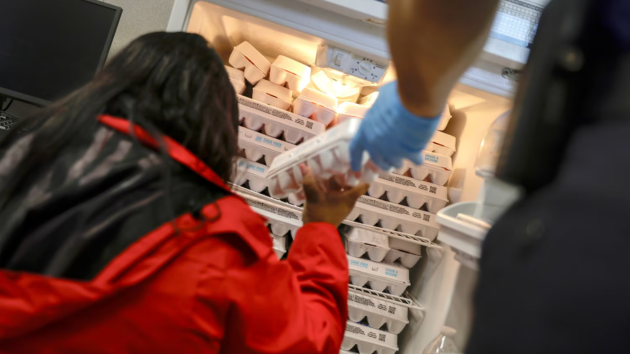Teachers protest bills targeting critical race theory, race education
Written by Lucky Wilson | KJMM.COM on August 27, 2021

(NEW YORK) — Teachers are gathering in more than 115 cities this weekend to “teach truth” in protest of the anti-race education and anti-critical race theory legislation being proposed across the country.
In Philadelphia, teachers, students and activists are gathering at the home of George Washington to tell the stories of enslaved people who played a role in the creation of the nation. Specifically, they’ll discuss the people that the first U.S. president kept as slaves.
Nine slaves served him at the executive mansion, according to the National Park Service. At the time of his death, Washington enslaved more than 100 people.
In Kansas City, Missouri, demonstrators will march from Lincoln College Preparatory Academy — one of the first schools for Black students — to the Black Archives of Mid-America, a museum that documents the social, economic, political and cultural history of Black Americans.
These lessons, among others, may soon be banned from being taught in classrooms.
“It’s really important as educators that we don’t allow these bills to put us on the defensive, and instead we use the opportunity to take these actions to highlight the racist path of our country, of our states, of our cities, that needs to be reckoned with,” said Adam Sanchez, a history teacher in Philadelphia.
Lawmakers in at least 27 states have introduced or implemented legislation that would require teachers to remove certain lessons about the role of racism, sexism and oppression in U.S. history.
Many of the bills, which have almost identical texts, state that teachers are banned from teaching that “one race or sex is inherently superior to another race or sex,” or that “an individual, by virtue of the individual’s race or sex, is inherently privileged, racist, sexist or oppressive, whether consciously or subconsciously.”
It also bars teachers from discussing whether “a meritocracy is inherently racist or sexist, or designed by a particular race or sex to oppress members of another race or sex.” Classroom discussions are also barred from touching on whether “the United States is fundamentally or irredeemably racist or sexist.”
The Days of Action, from Aug. 27 to 29, is part of the Teach Truth pledge, which has been signed by more than 6,600 teachers nationwide. “We, the undersigned educators, refuse to lie to young people about U.S. history and current events,” the pledge reads.
The Day of Action and Teach Truth Pledge are hosted by the Zinn Education Project, a collaboration between education advocacy groups Rethinking Schools and Teaching For Change.
“By censoring and restricting what teachers can teach, that is censoring what students learn and it’s going to change the trajectory of our country,” said Nelva Williamson, a history teacher in Houston. “We are not doing harm to students by teaching them the history of this country — the good, the bad and the ugly.”
Some teachers said the vague language in these bills blocks them from teaching history and having truthful conversations with their students about inequality and oppression in America.
“This history and the cultures within the history should never be an option to talk about,” said Rozlyn Grady, a paraeducator in Anchorage, Alaska. “We just want our folks, our teachers to not be afraid to teach what they know to be the truth. … That’s what I want all of our teachers to be able to do without fear of retribution or penalty.”
Critical race theory has been blamed for this recent push by Republican legislators. Critical race theory is the study of American institutions and the way in which laws and policies help perpetuate racism.
It also analyzes white privilege, the idea that white people have advantages since they are not affected by race-based discrimination in the legal system.
This academic discipline, typically used in higher education, has been invoked by legislators pushing these bills that limit lessons on oppression, though the vast majority of the bills don’t mention it in their texts.
Some legislators, like Pennsylvania state Reps. Russ Diamond and Barbara Gleim, who introduced a bill in their state, said the teachings can be hurtful to children.
“The manner in which important concepts such as racial and gender equality are taught in our schools could not be more important in defining the type of society we have,” Diamond and Gleim wrote in a legislative memorandum. “Teaching our children that they are inferior or inherently bad based on immutable characteristics such as race and sex can be extremely damaging to their emotional and mental well-being.”
The outcry over critical race theory has placed a harsh spotlight on teachers. Some have been doxxed by anti-critical race theory protestors online and others fear that they’ll be disciplined for teaching events with racialized histories, according to the teacher advocacy group Zinn Education Project.
But that won’t stop teachers and activists who say the legislation erases history and turns back the clock on racial progress.
“These nostalgic narratives that have become what we call American history are incomplete,” said Cornell Ellis, a former teacher and founder of Brothers Liberating Our Communities, a network for Black educators. “They’re calling it critical race theory but we’re calling this accurate and inclusive history in social studies.”
Copyright © 2021, ABC Audio. All rights reserved.
 KVSP
KVSP 



